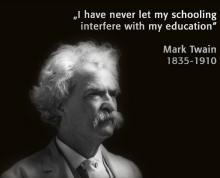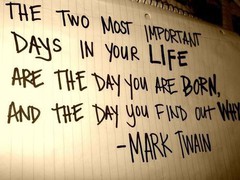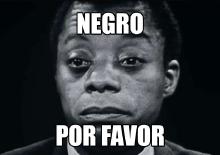Topic: King Charlies III has fake powers.
+Anonymous A — 2.6 years ago #63,726
Why do Brits still think they reside in an Empire? Why haven't Brits started seasoning their food? Brits are an inferior subspecies to the rest of the humanity.
(Edited 25 seconds later.)
+Anonymous B — 2.6 years ago, 6 minutes later[T] [B] #639,749
you are a piece of shit!!
+Anonymous C — 2.6 years ago, 7 minutes later, 13 minutes after the original post[T] [B] #639,750
+Anonymous D — 2.6 years ago, 24 minutes later, 38 minutes after the original post[T] [B] #639,751
+Anonymous E — 2.6 years ago, 1 hour later, 2 hours after the original post[T] [B] #639,752
@639,750 (C)
Because they forced it on everyone else, you Brit bitch.
Plus America and other countries do it better.
Because they forced it on everyone else, you Brit bitch.
Plus America and other countries do it better.
·Anonymous C — 2.6 years ago, 3 hours later, 6 hours after the original post[T] [B] #639,759
@previous (E)
Yourself and @OP both live thousands of miles away from England, have never visited England, yet here you are speaking English every day and using the English language to talk shit about England. Your continued use of the English language is testament to the achievements of the British empire, and its continued relevance to this day.
Yourself and @OP both live thousands of miles away from England, have never visited England, yet here you are speaking English every day and using the English language to talk shit about England. Your continued use of the English language is testament to the achievements of the British empire, and its continued relevance to this day.
+396474 — 2.6 years ago, 2 hours later, 8 hours after the original post[T] [B] #639,760
English people live in dream as many people do nowadays. But mostly its free masons agenda because royal family are connected to them. Not all English natives support them. There is no fucking day without those royal celebrities in media so they have some power. But they didnt realized they arent true kings as they ancestors just stupid actors in B movie directed by someone else.
+Part 2 — 2.6 years ago, 6 hours later, 15 hours after the original post[T] [B] #639,764
 @639,759 (C)
@639,759 (C)> Yourself and both live thousands of miles away from England, have never visited England, yet here you are speaking English every day and using the English language to talk shit about England. Your continued use of the English language is testament to the achievements of the British empire, and its continued relevance to this day.
"Indeed, as we are moving toward a trend of people using English as their second language, we will see that English language will continue to develop in a similar manner as before, but new dialects, slang, words and perhaps even linguistic variations will evolve."
The Sad Future of the English Language
https://termcoord.eu/2020/04/future-english-language/
Concerning The American Language
-[Being part of a chapter which was crowded out of "A Tramp Abroad."-- M.T.]
There was as Englishman in our compartment, and he complimented me on -on what? But you would never guess. He complimented me on my English. He said Americans in general did not speak the English language as correctly as I did. I said I was obliged to him for his compliment, since I knew he meant it for one, but that I was not fairly entitled to it, for I did not speak English at all--I only spoke American.
He laughed, and said it was a distinction without a difference. I said no, the difference was not prodigious, but still it was considerable. We fell into a friendly dispute over the matter. I put my case as well as I could, and said:
"The languages were identical several generations ago, but our changed conditions and the spread of our people far to the south and far to the west have made many alterations in our pronunciation, and have introduced new words among us and changed the meanings of many old ones. English people talk through their noses; we do not. We say know, English people say nao; we say cow, the Briton says kaow; we-"
"Oh, come! that is pure Yankee; everybody knows that."
"Yes, it is pure Yankee; that is true. One cannot hear it in America outside of the little corner called New England, which is Yankee land. The English themselves planted it there, two hundred and fifty years ago, and there it remains; it has never spread. But England talks through her nose yet; the Londoner and the backwoods New-Englander pronounce 'know' and 'cow' alike, and then the Briton unconsciously satirizes himself by making fun of the Yankee's pronunciation."
We argued this point at some length; nobody won; but no matter, the fact remains Englishmen say nao and kaow for "know" and "cow," and that is what the rustic inhabitant of a very small section of America does.
"You conferred your 'a' upon New England, too, and there it remains; it has not traveled out of the narrow limits of those six little states in all these two hundred and fifty years. All England uses it, New England's small population-say four millions-use it, but we have forty-five millions who do not use it. You say 'glahs of wawtah,' so does New England; at least, New England says 'glahs.' America at large flattens the 'a', and says 'glass of water.' These sounds are pleasanter than yours; you may think they are not right
"The same is the case in England--I mean among the educated classes, of course."
"Yes, that is true; but a nation's language is a very large matter. It is not simply a manner of speech obtaining among the educated handful; the manner obtaining among the vast uneducated multitude must be considered also. Your uneducated masses speak English, you will not deny that; our uneducated masses speak American it won't be fair for you to deny that, for you can see, yourself, that when your stable-boy says, 'It isn't the 'unting that 'urts the 'orse, but the 'ammer, 'ammer, 'ammer on the 'ard 'ighway,' and our stable-boy makes the same remark without suffocating a single h, these two people are manifestly talking two different languages. But if the signs are to be trusted, even your educated classes used to drop the 'h.' They say humble, now, and heroic, and historic etc., but I judge that they used to drop those h's because your writers still keep up the fashion of patting an before those words instead of a. This is what Mr. Darwin might call a 'rudimentary' sign that as an was justifiable once, and useful when your educated classes used to say 'umble, and 'eroic, and 'istorical. Correct writers of the American language do not put an before three words."
(Edited 4 minutes later.)
·Part 2 — 2.6 years ago, 1 minute later, 15 hours after the original post[T] [B] #639,765
 The English gentleman had something to say upon this matter, but never mind what he said--I'm not arguing his case. I have him at a disadvantage, now. I proceeded:
The English gentleman had something to say upon this matter, but never mind what he said--I'm not arguing his case. I have him at a disadvantage, now. I proceeded:"In England you encourage an orator by exclaiming, 'H'yaah! 'yaah!' We pronounce it heer in some sections, 'h'yer' in others, and so on; but our whites do not say 'h'yaah,' pronouncing the a's like the a in ah. I have heard English ladies say 'don't you'-making two separate and distinct words of it; your Mr. Burnand has satirized it. But we always say 'dontchu.' This is much better. Your ladies say, 'Oh, it's oful nice!' Ours say, 'Oh, it's awful nice!' We say, 'Four hundred,' you say 'For'-as in the word or. Your clergymen speak of 'the Lawd,' ours of 'the Lord'; yours speak of 'the gawds of the heathen,' ours of 'the gods of the heathen.' When you are exhausted, you say you are 'knocked up.' We don't. When you say you will do a thing 'directly,' you mean 'immediately'; in the American language-generally speaking--the word signifies 'after a little.' When you say 'clever,' you mean 'capable'; with us the word used to mean 'accommodating,' but I don't know what it means now. Your word 'stout' means 'fleshy'; our word 'stout' usually means 'strong.' Your words 'gentleman' and 'lady' have a very restricted meaning; with us they include the barmaid, butcher, burglar, harlot, and horse-thief. You say, 'I haven't got any stockings on,' 'I haven't got any memory,' 'I haven't got any money in my purse; we usually say, 'I haven't any stockings on,' 'I haven't any memory!' 'I haven't any money in my purse.' You say 'out of window'; we always put in a the. If one asks 'How old is that man?' the Briton answers, 'He will be about forty'; in the American language we should say, 'He is about forty.' However, I won't tire you, sir; but if I wanted to, I could pile up differences here until I not only convinced you that English and American are separate languages, but that when I speak my native tongue in its utmost purity an Englishman can't understand me at all."
"I don't wish to flatter you, but it is about all I can do to understand you now."
That was a very pretty compliment, and it put us on the pleasantest terms directly-I use the word in the English sense.
[Later-1882. Esthetes in many of our schools are now beginning to teach the pupils to broaden the 'a,' and to say "don't you," in the elegant foreign way.]
Literature Network » Mark Twain » Concerning The American Language
(Edited 5 minutes later.)
+Anonymous H — 2.6 years ago, 1 day later, 1 day after the original post[T] [B] #639,803
What actually powers does this King have?
+Anonymous I — 2.6 years ago, 7 hours later, 1 day after the original post[T] [B] #639,817
+Anonymous J — 2.6 years ago, 1 day later, 3 days after the original post[T] [B] #639,925
@OP
> Why do Brits still think they reside in an Empire?
They do not. Thanks.
> Why haven't Brits started seasoning their food?
They have. Thanks.
> Brits are an inferior subspecies
They are not. Thanks.
> rest of the humanity
You are an imbecile. Thanks.
> Why do Brits still think they reside in an Empire?
They do not. Thanks.
> Why haven't Brits started seasoning their food?
They have. Thanks.
> Brits are an inferior subspecies
They are not. Thanks.
> rest of the humanity
You are an imbecile. Thanks.
(Edited 14 seconds later.)
·Anonymous J — 2.6 years ago, 5 minutes later, 3 days after the original post[T] [B] #639,926
@639,760 (396474)
> But they didnt realized
Ouch.
> they arent true kings
Oh dear.
> as they ancestors just stupid actors
You really suck at this.
> in B movie directed by someone else.
The words are English but I'm afraid you'll have to work a little harder if you wish to convey meaning in our language.
> But they didnt realized
Ouch.
> they arent true kings
Oh dear.
> as they ancestors just stupid actors
You really suck at this.
> in B movie directed by someone else.
The words are English but I'm afraid you'll have to work a little harder if you wish to convey meaning in our language.
·396474 — 2.6 years ago, 2 hours later, 4 days after the original post[T] [B] #639,951
@previous (J)
> > But they didnt realized
> Ouch.
>
> > they arent true kings
> Oh dear.
>
> > as they ancestors just stupid actors
> You really suck at this.
>
> > in B movie directed by someone else.
> The words are English but I'm afraid you'll have to work a little harder if you wish to convey meaning in our language.
Half of your country speak foreign languages some dont even respect your culture but king is more important to you. Thats fine.
> > But they didnt realized
> Ouch.
>
> > they arent true kings
> Oh dear.
>
> > as they ancestors just stupid actors
> You really suck at this.
>
> > in B movie directed by someone else.
> The words are English but I'm afraid you'll have to work a little harder if you wish to convey meaning in our language.
Half of your country speak foreign languages some dont even respect your culture but king is more important to you. Thats fine.
Start a new topic to continue this conversation.
Or browse the latest topics.
